How to organize your life: Top tips to cultivate new habits and lead a happier, more productive life
Wondering how to organize your life once and for all? We chatted to life coaches and organization experts who shared their top tips

Figuring out how to organize your life is a balancing act: no one is 100% organized all the time, and we can’t predict what life will throw at us.
Of course, there are the major, life-changing events that take us by surprise and throw everything into a tailspin, but there are also the small ones like a broken hoover, an overflowing inbox, or an unexpected bill. Together, these small tasks can add up until they feel overwhelming and insurmountable.
Luckily, it’s easy to tackle these small—and controllable—areas of life by creating habits and routines that help shape how we handle them. Learning to be organized is all about cultivating new habits and anyone can do it, even if you’re naturally disorganized. Being organized is a skill you can develop through repeated habits and practice. Even better? Over time, most of these habits will become second nature and help you deal with stress usually caused by situations where you feel overwhelmed.
So whether you want to make a big life change or just want to know how to organize your kitchen or how to organize a small space, the answer normally lies in establishing new routines and habits.
We spoke to life coaches and organization experts who shared helpful methods and habits you can start incorporating into your daily routine to help aid productivity and long-term happiness.
Expert tips on how to organize your life to feel happier and be more productive
Below are some general, expert tips about how to organize yourself on a day-to-day basis, but you may want to hone in on a specific area. For example, if you’re not feeling motivated, ask yourself why that is and what self-motivation tips and tools can you tap into to help focus your thoughts?
Depending on what works for you, it might be worth buying one of the best self help books or downloading one of the best podcasts for self-improvement. Some people find confidence affirmations useful too for helping them achieve their goals.
Sign up for the woman&home newsletter
Sign up to our free daily email for the latest royal and entertainment news, interesting opinion, expert advice on styling and beauty trends, and no-nonsense guides to the health and wellness questions you want answered.
Others might be more interested in organizing their physical environments, like your home, bedroom or garden.
Whatever your objective, these expert tips will get you off on the right track.
1. Identify the areas you want to organize or influence
While there are universal tips that will help everyone, identifying the parts of your life that you want to organize, or streamline is the first thing you’ll need to do.
"Knowing what your obstacles are in advance will give you more chance of overcoming them,” says Kate Ibbotson, Founder of A Tidy Mind. "Before you can start any process of organizing, whether it’s your home or your life in general, you need to determine what is causing the chaos in the first place and what is stopping you from doing it. Too many commitments? Lack of motivation/interest? Lack of productivity? You don’t know where to start or how to do it?"
Jo Reeves, Lead House Coach and Tutor at Barefoot Coaching, advises writing down the things you want to work on, focusing on the areas you can control, rather than the ones you cannot. "A great starting point is to identify what it is you really want to organize or influence. Often, we can spend too much time and energy focusing on things that are out of our control or influence, rather than what we can control," Reeves says, giving the below instructions.
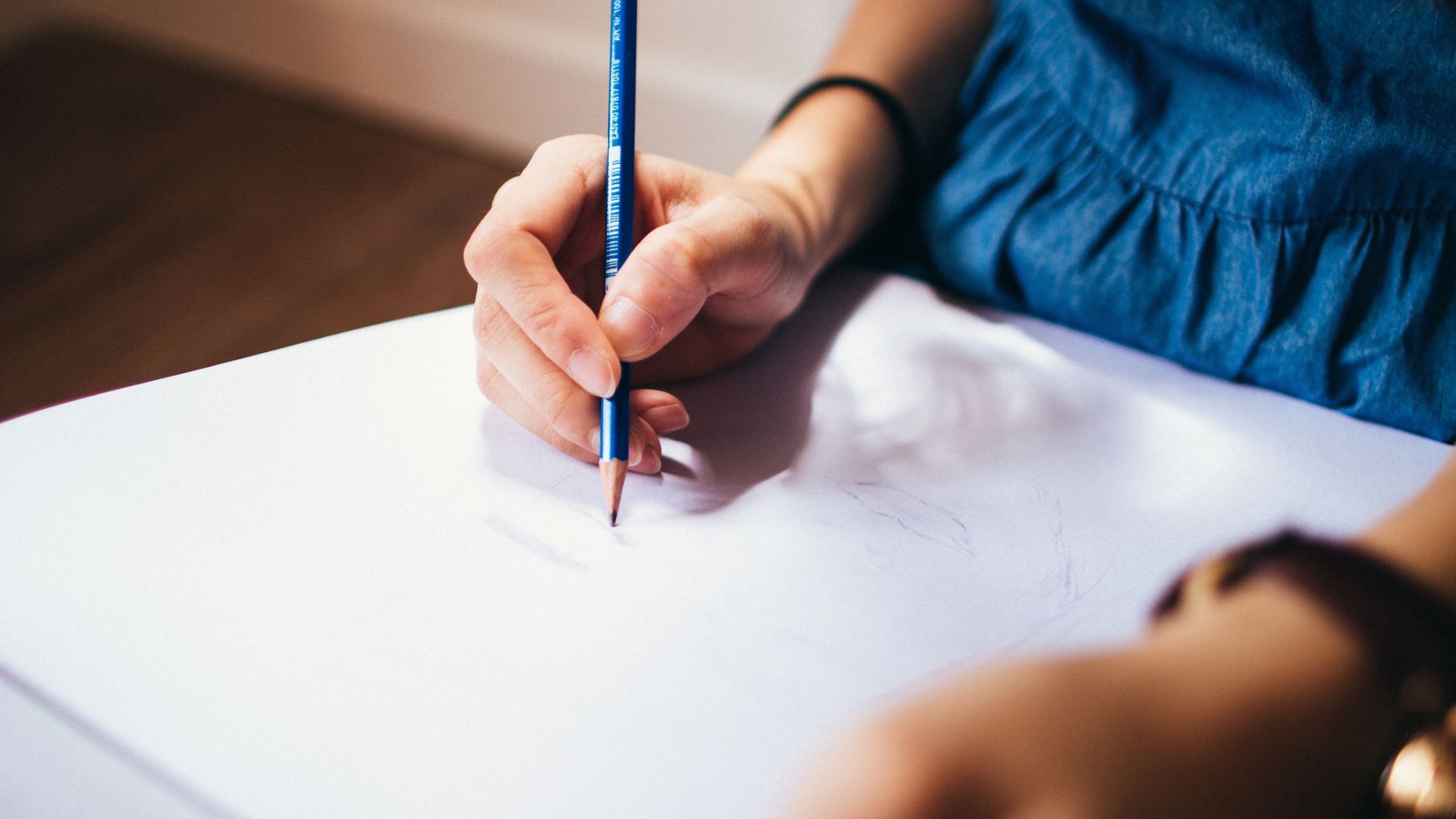
"Firstly, get a piece of paper or journal and draw two circles, one inside the other.
"In the outer circle, write down all the things you cannot control, influence, or organize. This could be other people’s behavior and opinions, for example, changes in world events, or even ruminating over past incidents.
"In the inner circle, write down the things you can control, influence, or organize – your behavior and opinions, or perhaps developing a healthy routine, staying hydrated, limiting social media, or journaling. The key here is to be as explicit as possible – make it personal to you.
"Now that you have identified your ‘circle of influence’, send your energy, and focus there. That is your starting point. As for the outer circle, accept that these are things you cannot control or influence and any energy you expend on them is wasted time and energy which you could be spending on what you can control."
2. Write everything down
Whether you want to pen a to-do list as part of a Sunday reset routine, jot down important dates, or write a list of your worries, get into the habit of keeping a pen and paper with you. Alternatively, use a notes app on your phone or diary. The important thing is that it’s easy to access when you’re at home and on the go.
Keep a running list, advises Ibbotson. "Write everything down or you will forget something. A cloud-based list on your smartphone works well or a single notebook you carry with you. Have a wall-mounted chalkboard or whiteboard for writing important reminders and erase them when completed. You can also use these to note when you run out of something." You can later turn this into a shopping list and take a picture of it on your phone to access when you’re out and about.
Grace McMahon, Life Coach at Being Well, agrees on the power of writing things down: "There’s a lot going on in our lives at once, and in the age we live in there’s always a lot of information to process, which can interfere with what we’re interested in, what we want in life, and what we’ve got to do. Keep a note of important dates, things to do, shopping lists, work tasks, the kids’ social life and yours."
Many of the best productivity planners and best organization apps have spaces to complete your monthly, weekly or even daily tasks and goals. We're a big fan of these at woman&home as some of them are beautifully designed and a genuine joy to write in - which makes getting into the routine of writing everything down that little bit easier.
3. Create structure and routine
Structure and routine are important for general well-being, from working out how to create the best bedtime routine, to figuring out the best daily wellness routine, or the best skincare routine. Nailing a routine can help us create positive daily habits that promote general wellbeing.
"Create flexible schedules and routines to keep on track," says McMahon, but don’t make them too rigid. "We can’t always predict how things pan out, so flexibility is key to being able to adapt. Too rigid and you might find it’s more stressful when things go askew. Having a flexible routine or schedule helps us tackle things one at a time, or a section at a time, and also helps us feel a sense of control in our lives which can help us feel more organized. Perhaps you have a meal prep day if you’re into that, or a designated laundry day or a life admin day once a week."
Ibbotson agrees on the importance of creating a routine. "Make routine your best friend," she says. For example, at 6pm get the kids to tidy up toys, 6:15pm bathtime, 6:45pm snack time, 7pm storytime, 7:15pm bedtime. Set alarms until it becomes second nature. Run your home like a military operation." Even if you can't meet these 'deadlines' it's worth establishing them, so you have something to work towards.
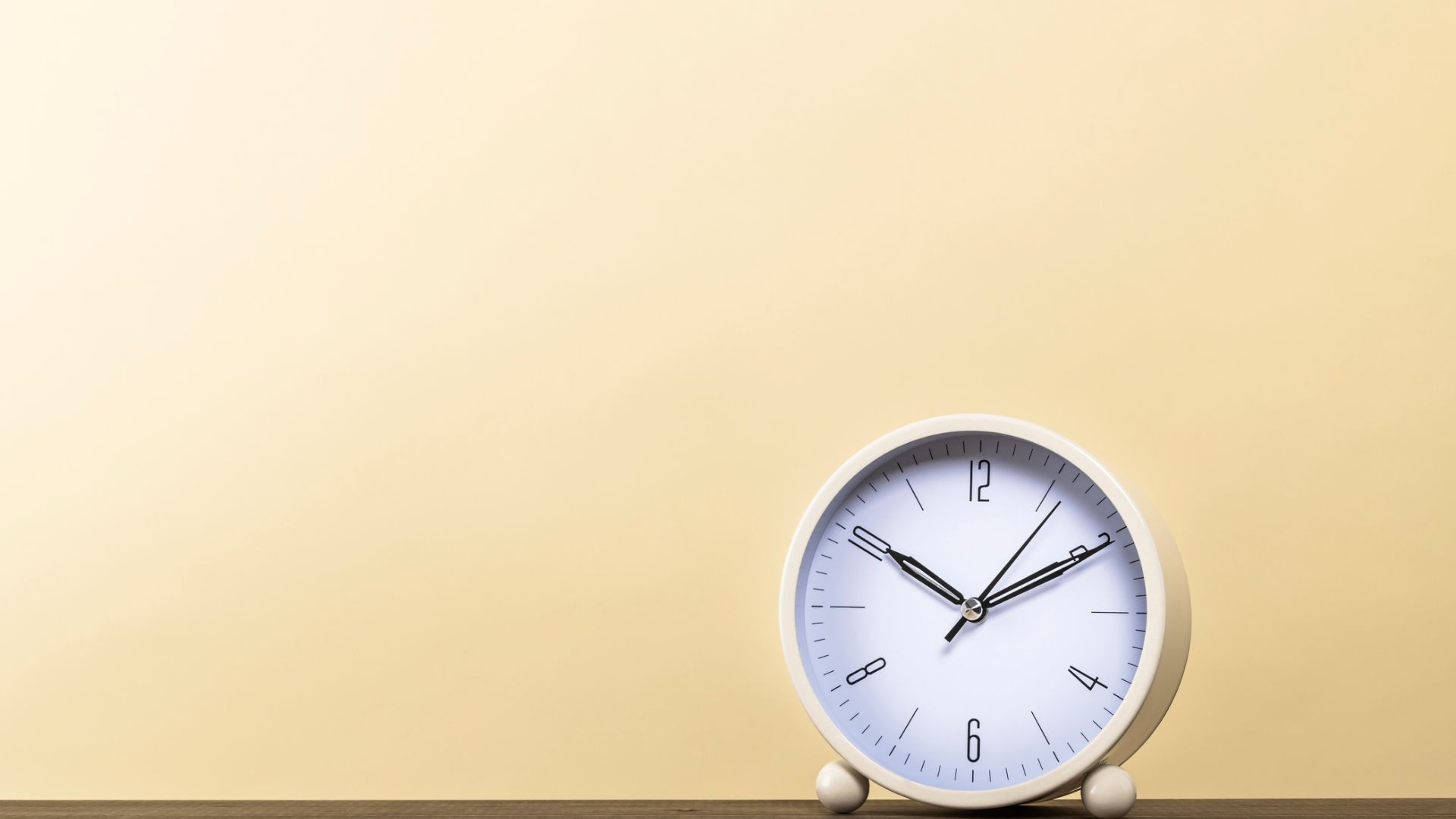
4. Set short and long term goals
Think about writing daily, weekly, or monthly ‘to-do’ lists, either in a notepad, diary, or planning app. It’s helpful to physically see the tasks you have to get through, not to mention extremely satisfying when you can score them off.
"The areas of your life to organize will be entirely personal to you, so it’s a case of figuring out your priorities, goals, and areas for improvement," McMahon says. “For example, your priority might be to focus on work right now, to reach your goal of a new job, a promotion, or starting your own business. And you might need to improve some skills you already have or develop new ones to help you. Regardless of the area, think about what’s important to you, what you’d like to improve or make a change to, and where you’d like to be in the future (next year, next month, in six months)."
Short term it might be helpful to spend ten minutes in the morning working out your ‘must-dos’ of the day, focusing on the ones you know will otherwise slip your mind.
Longer-term, think about what needs to change in your daily routine. Do you find yourself oversleeping or not getting enough sleep? Then check our guide on how to sleep better, packed with tried and tested tips you can incorporate into your nightly routine. If you’re struggling to keep up a fitness regime, try to visit the gym on designated days every week. If you prefer to work out at home, decide on the best workout app for you and schedule when you use it. It might be five minutes before work every day, or 30 minutes every second day. The important thing is to build a realistic schedule. Record these goals, and what you need to do to achieve them.
5. Declutter your home
It’s cliche, but true: you can’t declutter your mind if you’re working in a cluttered space. So, the first step to organizing your life is to organize your living space and declutter your home. No one knows this better than Kate Ibbotson, former probation officer turned professional declutterer and life coach.
"There was a time when I was overwhelmed by the amount of ‘stuff’ in my life. My home was too full and my mind was too. Decluttering my life was what saved me – creating calm and bringing joy to the every day," she admits. The first step to organizing your space is simply decluttering.
"Less stuff means less to organize, less to clean, less to store, and less mess. Organizing will come later and so will decisions about storage," Ibbotson says.
"Every single item in your house should have a ‘home.’ After use, it should be returned to its home as soon as possible. There should be no need for many items to remain on surfaces or floors – keep these spaces as clear as you can so that the space is available for you when you need it."
Ibbotson also advises storing things close to where you use them, thereby minimizing the steps you need to go through, meaning you’re more likely to store them quickly after use. "The closer you store items to where you use them, the quicker and easier it is to tidy. For instance, if you wrap gifts and write cards at the kitchen table, store a box containing everything you need in a kitchen cupboard. When you are finished, it will be easier to return the materials back to their home immediately and there will be less risk of them remaining on the kitchen table."
"Finally, minimize the steps you need to go through. For example, let's say you use the same face cream daily. If the cream is inside a wash bag, in a cupboard under the sink, there are a number of steps to go through to access it and more importantly, to put it back in its home. It's far better to keep the cream in an open container or dish within easy reach. If you do this, you will be far more likely to put it back in its home after each use, therefore avoiding it turning into clutter."
If you want help decluttering and organizing a particular area of your home, check out our dedicated guides on how to organize a pantry, how to organize your closet, and how to organize kitchen cabinets.
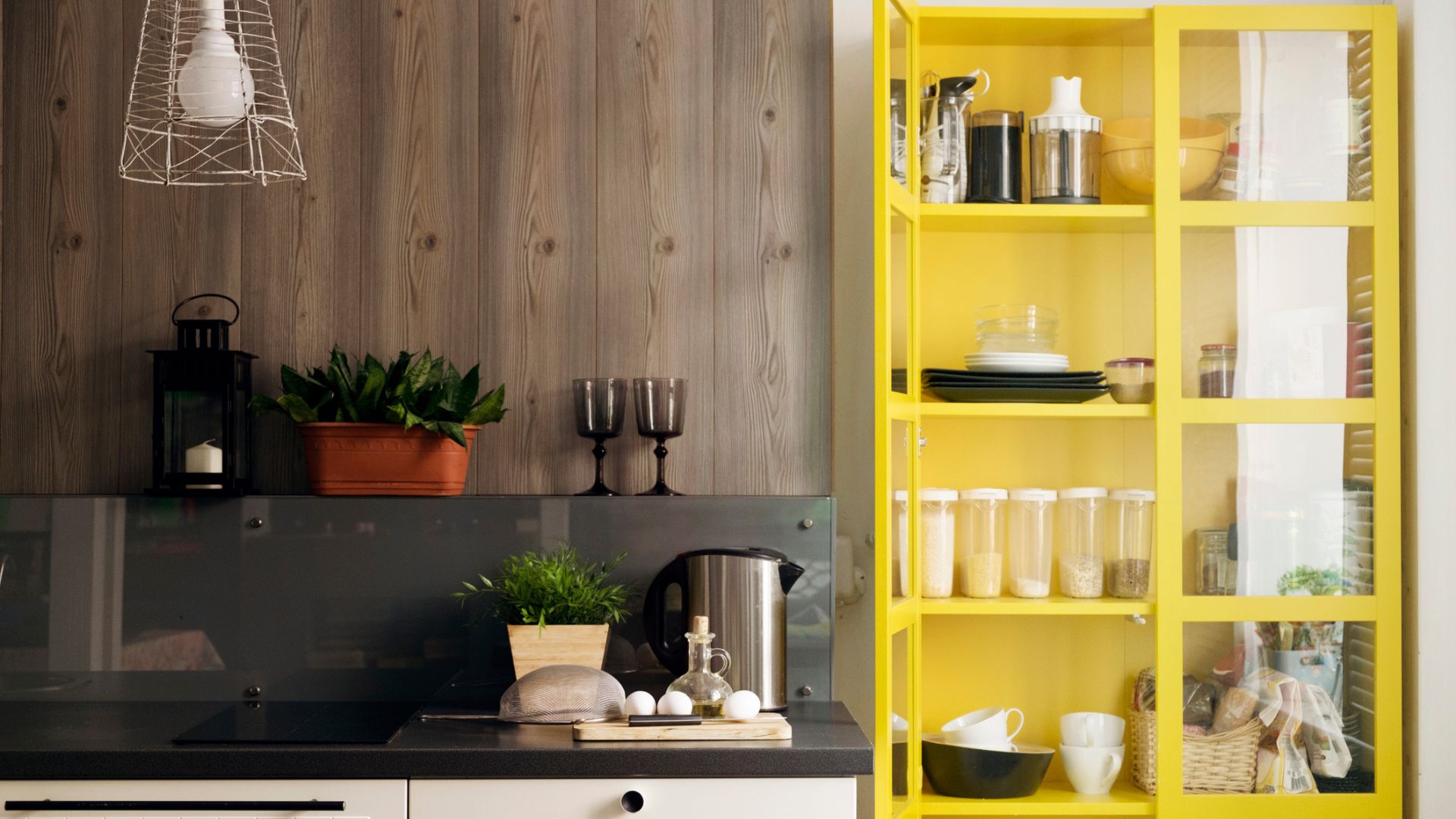
6. Deal with the small things
Small tasks can quickly add up and cumulatively become a real burden. Ibbotson advises using the 'one-minute rule' for these tasks, "If you can undertake a task in less than a minute, then do it right now" she says. For example, if you get a party invitation through the post, immediately RSVP and mark it on the calendar. If you can quickly pay a bill online, do it straight away. That way, these small tasks don’t build up into what then feels like a stressful, unmanageable list of tasks.
In general, try to avoid procrastinating. "This is obviously easier said than done," admits McMahon. "But when we put things off they’re often harder to tackle later down the line, and when it’s the big or important stuff they can look over us and cloud our judgment for everything else. Even if you get it wrong, give it a go, and start that thing you’ve been putting off. You could even use the schedule to dedicate a day to the big or hard stuff you need to do."
7. Remember to rest
The benefits of good sleep hygiene and proper rest cannot be understated. Rest can take many forms: it might be indulging in some proper self-care, recharging your social batteries, or just watching the best period dramas on TV. Without recharging mentally and physically, you can't organize your thoughts or yourself.
"Take time to rest, it can help us stay on top of everything,” says McMahon. If we don’t take a break from things, we’ll eventually be forced to by our brains and bodies. It might be an hour to yourself before work or bed, it might be an evening watching your favorite show or reading a book. It might be some scheduled self-care. Being organized doesn’t mean always doing something or always being busy, rest is a valuable part of self-care we often overlooked. It prevents us from getting overwhelmed, and overly stressed and even prevents burnout."
Prevention is always better than cure, but that's easier said than done, so if you are experiencing burnout, one of the most fundamental ways to recover from burnout is to get rest. In fact, proper rest is a solution to so many of life's problems. Once you establish a good sleep routine and proper downtime, you'll find many of those small hurdles much easier to overcome.

8. Develop ‘good habits’
"Being organized comprises of many habits," says Ibbotson. "On their own, they are totally achievable, even for the busiest of people. Most importantly, it’s possible to commit these tiny habits to autopilot pretty easily. However, it takes repetition and commitment to adopt new habits – and usually at least 90 days."
"Achieving autopilot is incredibly important because it means we don’t have to rely on willpower to take an action. This is essential because willpower ebbs and flows. If we’re tired, overwhelmed, or run down, we possess little willpower."
Of course, forming new habits isn’t an overnight process, so until you hit autopilot, set reminders on your phone, stick up post-it notes, or record the habits on your ‘to-do’ lists. Like anything new, the start might be a struggle but stick with it, and they will pay dividends in time.
Start small with these habits, advises McMahon. "Start small. Going in all guns blazing can be overwhelming and exhausting and we tend to quickly drop those habits. Break down the goals into smaller moves, and take it step-by-step. Focus on things you enjoy and build on the things you don’t - when we don’t enjoy something our motivation to stick with it can dwindle quickly. Build habits around the easier or nicer things and throw in something hard in between."
So, what are 'good habits'? Here are some of Ibbotson’s favorite ones.
- Don’t put it down, put it away
- Store it close to where I use it
- Don’t delay the decision
- Put the dishwasher on after dinner
- Empty the dishwasher before bed
- Assign a home to everything
- Emails: Do, Delegate, Defer, Delete
- Remove packaging from shopping before putting it away
- Unsubscribe from unwanted emails as soon as they come in
- Respond to unwanted marketing calls by blocking the number straight after hanging up
- Delete unsuitable images from your phone as and when you take them
- Refuse a receipt or hanger in the shop if you can
- Pick an outfit for the next day and lay it out ready
- When emptying the dryer/taking clothes of the washing line, put dry clothes away immediately (or in the ironing pile)
- Keep change for parking in the glove compartment of the car. Refill weekly/monthly
- Make lunch for the next day whilst cooking dinner
- Hang keys on a hook upon entry into the home
- Exercise a ‘purchase pause’ before buying an item.
- Spend 5 minutes the day before, planning the next day
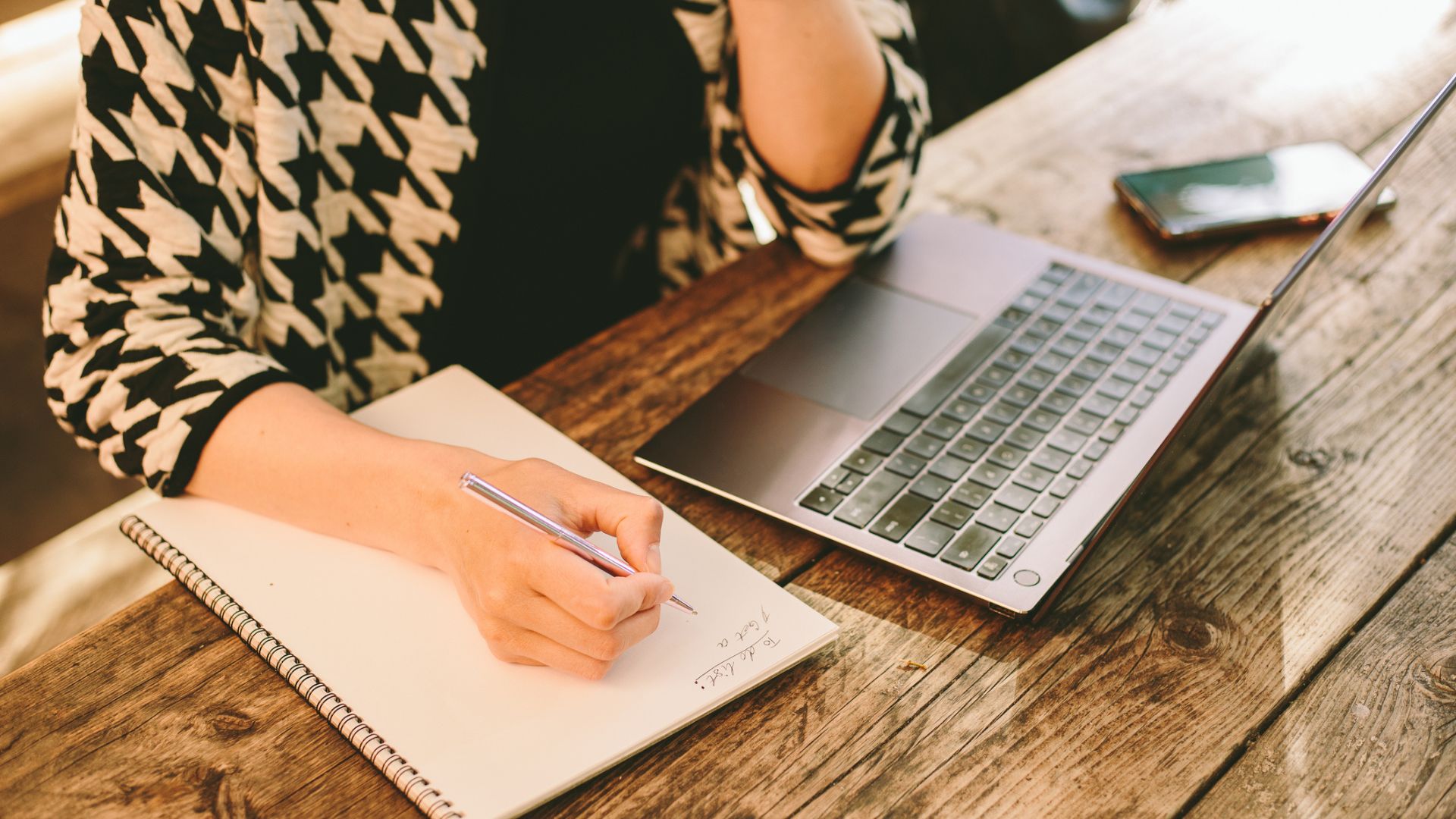
9. Download productivity apps
There are a wealth of brilliant apps and browser extensions, specifically created to help you organize your life. Check out our dedicated guide to the best productivity apps as tried and tested by the team. But we're also a big fan of these free apps:
- Todoist: A task management tool that allows you to set to-do lists, goals, and task lists. The basic version is free on Windows, Mac, iOS, Android, and Chrome.
- Trello: A popular app for workplaces across the world, Trello can also be a handy tool for day-to-day organization. Create simple to-do lists for daily use, or create dedicated boards if you're organizing something big, like a vacation, or party. Basic package is free, and available on all devices and browsers.
- Evernote: Take your notes to the next level with this free app, which allows you to upload pictures, scan text, create dynamic to-do lists and more. You can add dates and times to each task and set reminders, too.
- Flipd: Available on Android and iOS, Flipd is a free productivity app that motivates you to curb your phone habits. You can 'lock' your phone for designated amounts of time to complete particular tasks. This one is particularly handy if you find yourself scrolling endlessly on social media instead of getting through your to do list.
- Day One: With over 15 million downloads globally, this app is for anyone who prefers to do their journaling on the go. You can create entries on the go, upload voice and video notes and pictures. The basic version is free and covers most of your needs, but you can pay for more premium features if you want, such as synching across devices.

Anna is an editor and journalist with over a decade of experience in digital content production, ranging from working in busy newsrooms and advertising agencies to fashion houses and luxury drinks brands. Now a freelance writer and editor, Anna covers everything lifestyle, from fashion and skincare to mental health and the best cocktails (and where to drink them).
Originally from Glasgow, Anna has lived in Berlin, Barcelona, and London, with stints in Guernsey and Athens. Her love of travel influences her work, whether she’s stocking up on the best skincare at French pharmacies, taking notes on local street style, or learning to cook regional cuisines. A certified cinephile, when she's not travelling the world, you'll find her hiding away from it at her local cinema.
-
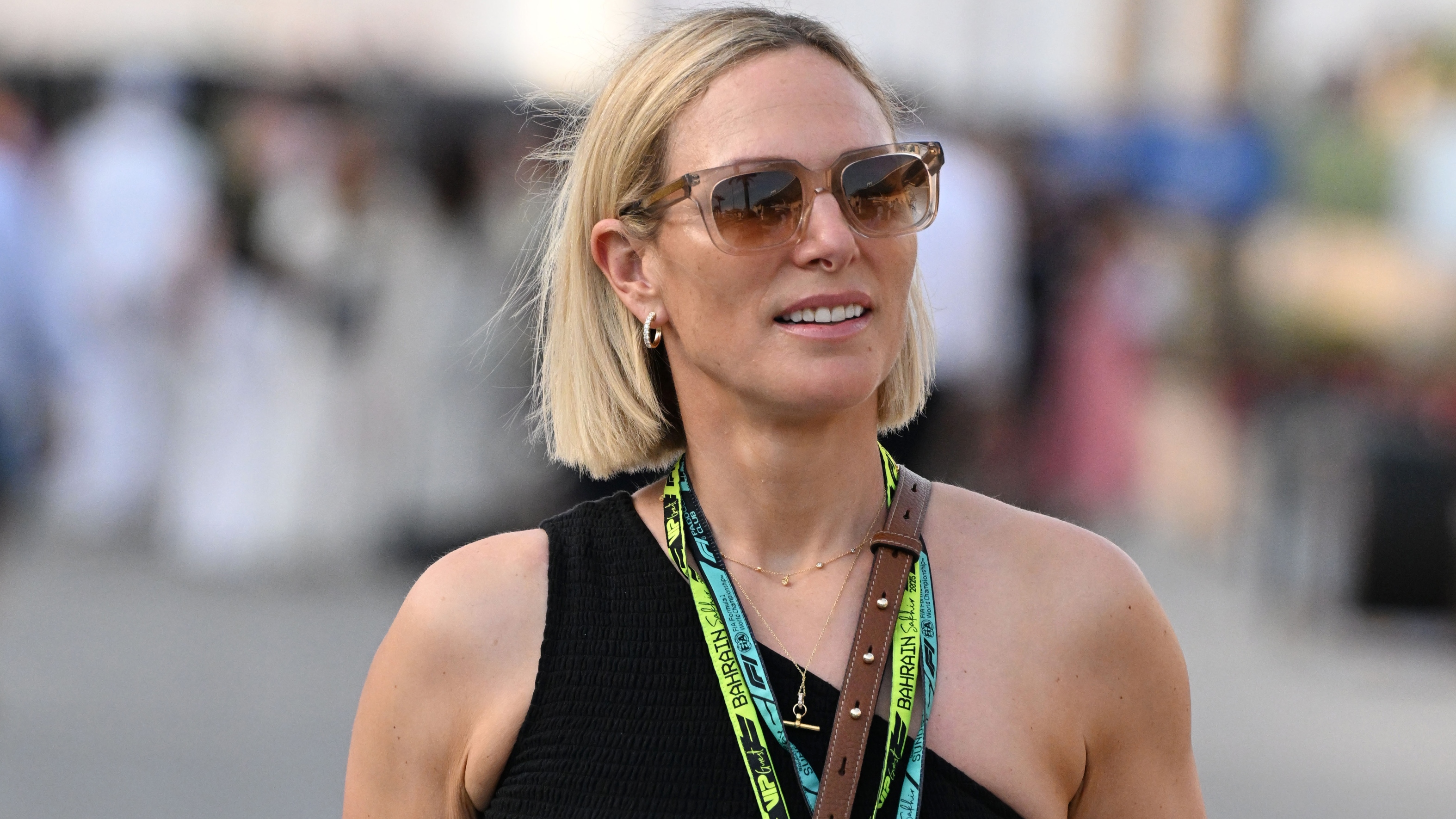 Royal style made casual - Zara Tindall's one-shoulder dress, denim jacket and Aspinal bag are the epitome of chic summer comfort
Royal style made casual - Zara Tindall's one-shoulder dress, denim jacket and Aspinal bag are the epitome of chic summer comfortZara Tindall's outfit in Bahrain was a more relaxed take on her signature style and was made up of timeless staples.
By Emma Shacklock Published
-
 All the lessons we've learned from Professor Tim Spector on optimising your health and wellbeing
All the lessons we've learned from Professor Tim Spector on optimising your health and wellbeingIf anyone's qualified to give us lessons on how to eat better, it's Professor Tim Spector - and these are his best lessons
By Grace Walsh Published